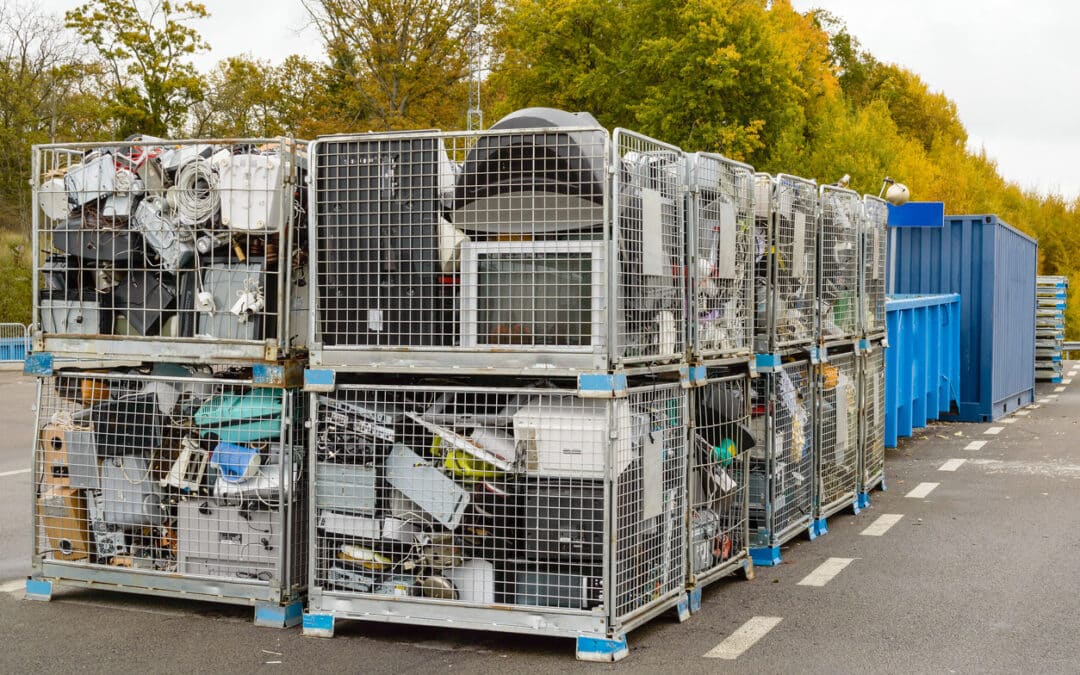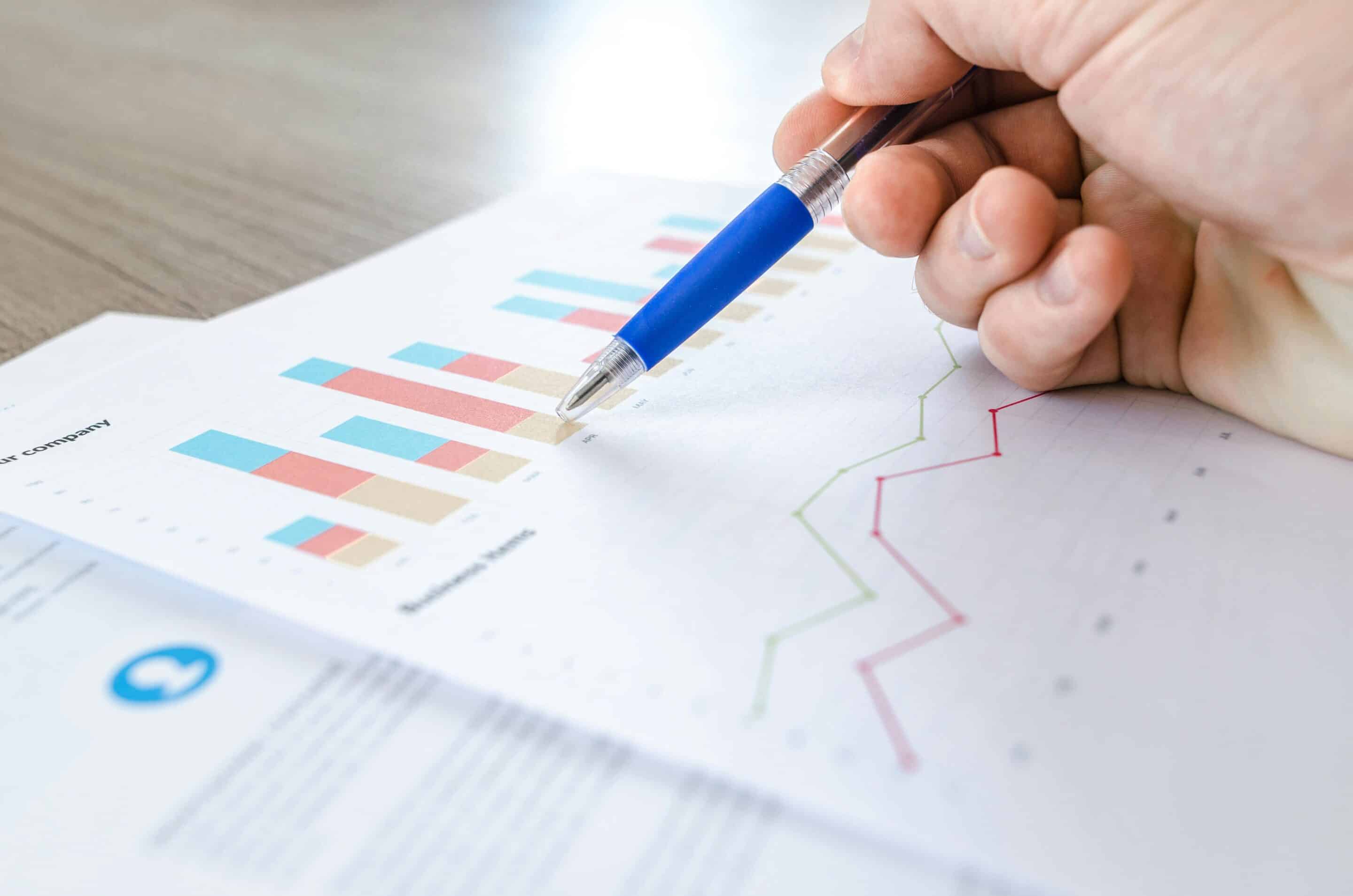Stichting OPEN (formerly Wecycle) is the only Dutch producer responsibility organization for e-waste. They commissioned a study by PwC that claims a market with a single PRO is the most effective and efficient way to implement Extended Producer Responsibility (EPR). This outcome is favorable for Stichting OPEN, but how accurate is this conclusion?
Stichting OPEN’s performance in perspective
First, some background on Stichting OPEN’s results. Since 2019, Directive 2012/19 of the European Union has required that 65% of the three-year average of electrical and electronic equipment (EEE) put-on-market volume is collected separately by producers, along with minimum targets per product category for preparation for reuse and recycling. Although producers are individually required by law to achieve these targets, this is often very difficult in practice. Therefore, producers and importers typically join so-called producer responsibility organizations (PROs) that collectively implement extended producer responsibility. When this target was set, the collection rate for waste EEE in the Netherlands stood at 48%, with several PROs operating in the market, including Wecycle and WEEE Nederland. Wecycle believed that a monopoly position would accelerate progress toward these objectives. They therefore decided to apply for a Declaration of General Applicability (AVV), with the promise to achieve the legal target of 65% within two years. The Ministry of Infrastructure and Water Management (I&W) subsequently approved the AVV, obliging producers, municipalities, and retailers affiliated with WEEE Nederland to join Wecycle, which continued as Stichting OPEN from that moment on. WEEE Nederland later became an implementing organization of Stichting OPEN.
The promise to achieve 65% within two years was not fulfilled, however, and now—five years later—the target remains out of reach: in 2024, only 32% was collected. Stichting OPEN has criticized the 65% target, and understandably so, as this target focuses solely on recycling and thus does not consider reuse, repair, or other circular strategies. The sharp increase in solar panels further distorts the picture, as these now account for a third of the total put-on-market volume but are hardly discarded yet. The new European target, requiring 85% of the actual waste EEE to be collected in the same year, corrects
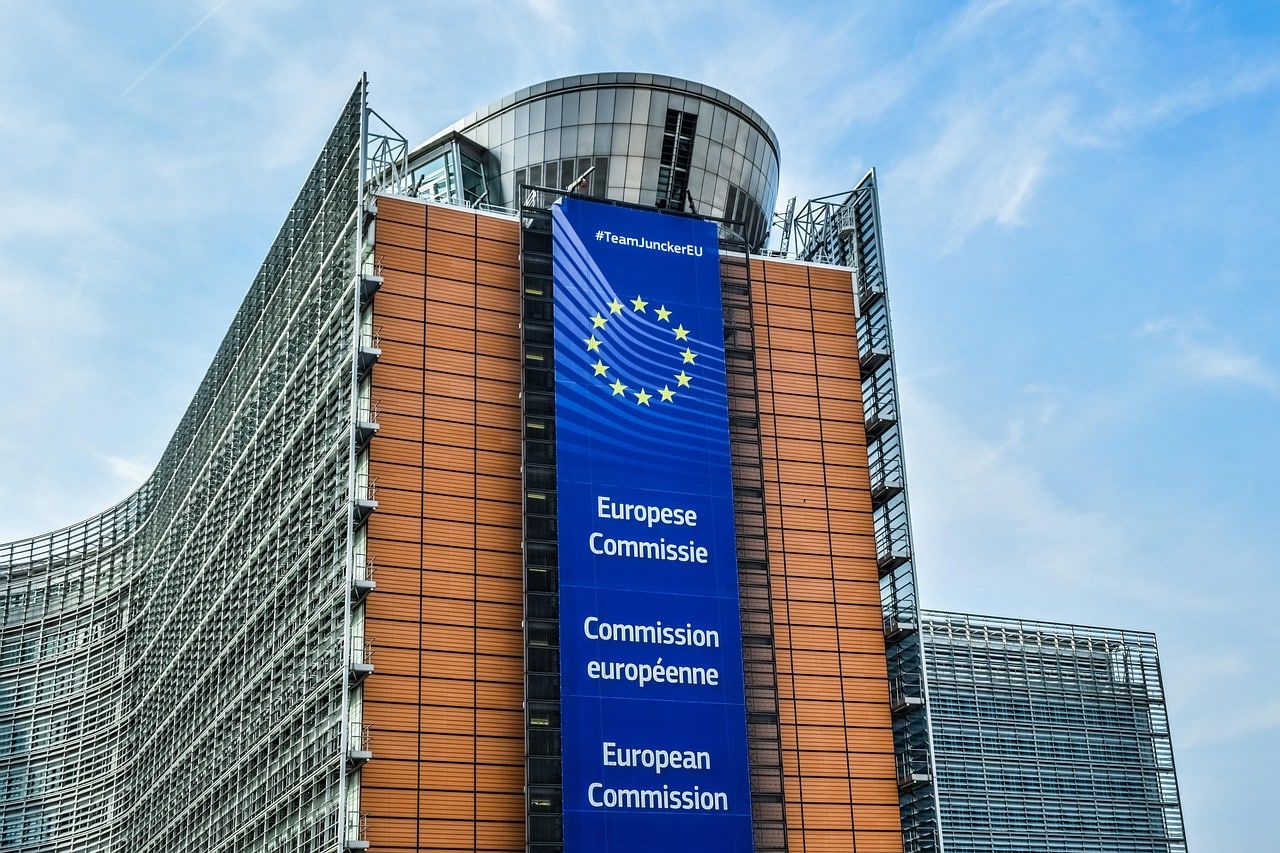
these shortcomings. The State Secretary for I&W has confirmed that from now on, the 85% target will be assessed instead of the previous 65% standard. Yet the fact remains that with a collection rate of 68% according to this method, Stichting OPEN still falls short of the target. The European Commission has therefore initiated infringement proceedings against the Netherlands, and the ILT has placed Stichting OPEN under increased supervision and instructed them to develop an improvement plan that will lead to a higher collection rate.
The PwC report
The PwC report commissioned by Stichting OPEN focuses primarily on the efficiency and advantages of a single-PRO model—essentially, a monopoly like Stichting OPEN. According to PwC, such a model would be more effective in tackling free riders and ensuring awareness and long-term investments. In addition, a switch to a multiple-PRO system would cause many problems, such as favoritism towards large companies and competitive pressure on prices, where the latter does not encourage improved recycling and long-term goals. Interestingly, another study, commissioned by the European Recycling Platform, reaches the opposite conclusion: competition between PROs stimulates innovation and increased efficiency, as PROs have a strong incentive to improve the services they offer to their customers. Because the PwC study focuses exclusively on arguments in favor of a monopoly versus multiple PROs, the question of how a PRO system can be designed to function efficiently remains unanswered.
Another important note is the lack of consultation with relevant stakeholders in the report, such as WEEE Nederland—which now collaborates with Stichting OPEN—and other stakeholders, including knowledge institutions, municipal waste collectors, recyclers, and consumer organizations. Without their input, it is difficult to draw well-founded conclusions, especially in terms of striving for circularity, transparency, and participation in PROs.
A position paper by Fair Resource Foundation highlights the risk that PROs may leverage their dominant position for lobbying purposes, while other actors have limited influence. A key reason behind the establishment of the EPR organization Collective Circular Textiles was to offer an alternative that focuses on circularity and inclusivity. A white paper on EPR from Utrecht University emphasizes the need for a different management model for producer organizations, with a clear role for other stakeholders such as municipalities, waste companies, and social organizations in setting the PRO’s strategy. The white paper therefore calls for a ‘circular value chain management organization’ with broad representation, beyond producers alone. The key question is therefore not necessarily whether you can have one or more PROs, but rather what frameworks the government provides to a PRO. In that framework, the ongoing EPR revision (doorontwikkeltraject UPV) is particularly relevant.
In addition, the study raises further questions about the establishment and interpretation of the results, as the analysis is based on a comparison of the Dutch structure with that of five other European countries. The conclusion that a monopoly is more effective and efficient rests on this limited comparison. Yet the figures in the report do not convincingly demonstrate that countries with a single-PRO system perform better than countries with multiple PROs. That conclusion therefore appears somewhat premature. Furthermore, the Netherlands Environmental Assessment Agency (PBL) and the Netherlands
Bureau for Economic Policy Analysis (CPB) report that the question of under what circumstances monopolistic PROs are more efficient than competing PROs can hardly be answered empirically, due to significant differences in cost factors and waste streams across countries.
Striking similarities
The report shows striking similarities with PwC’s conclusions about Verpact, the only Dutch PRO for packaging, which commissioned a virtually identical study by the exact same consultancy firm earlier this year. The questions asked and conclusions drawn were the same: the current system, in which one actor has a monopoly, works the best. This is unlikely to be a coincidence, given that both reports were published in close succession and with a similar objective.
Stichting OPEN will undoubtedly use the findings of the PwC report in its discussions with the ministry and other stakeholders to support its new AVV application, submitted on April 1, 2025. This new AVV is expected to come into effect on January 1, 2026. The timing of the publication is also strategic, given the Dutch parliamentary elections on October 29 and the consultation on the European Circular Economy Act, which also focuses on EPR. In this way, the importance of the AVV is emphasized to decision-makers on this issue.
Regardless of whether the AVV is granted, it is important that we do not reduce the discussion about producer responsibility to a discussion about a monopoly or competition, but rather talk about what we expect from EPR. And that is: focusing on circularity instead of collection and recycling, greater transparency, genuinely involving stakeholders in EPR, and effective enforcement.
Related Tags
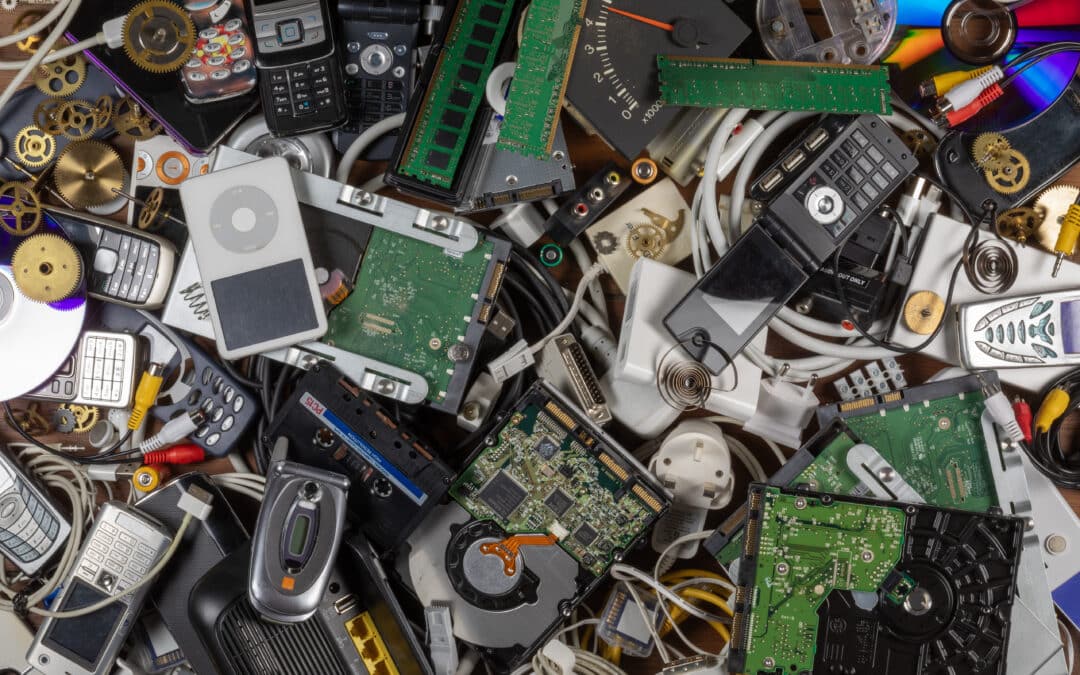
Stichting OPEN misses opportunities to accelerate the circular transition in its application for a general binding declaration
This article analyzes the new AVV request by Stichting OPEN for e-waste, showing persistent failure to meet collection targets, producer-dominated governance, and minimal focus on reuse and lifetime extension in the 2025–2030 Action Plan. It also questions the AVV instrument’s effectiveness and the limited influence of stakeholders in the consultation process.
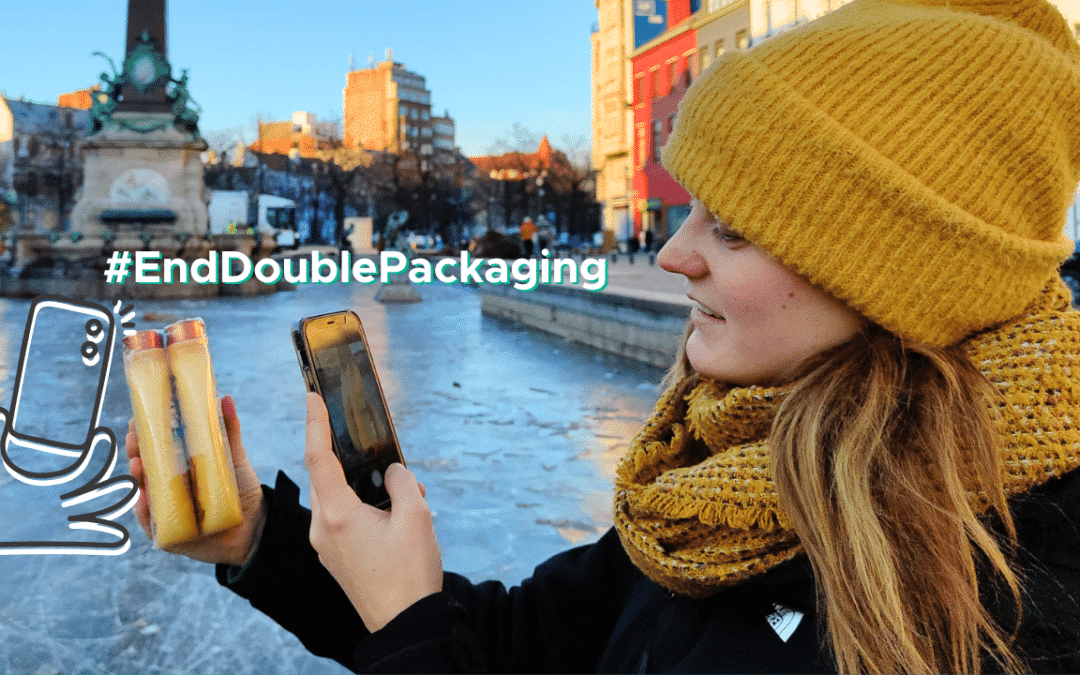
#EndDoublePackaging: Your pictures can end double packaging
RNB joins forces with other Belgian NGOs to launch the #EndDoublePackaging campaign to encourage consumers to report cases of overpackaging.
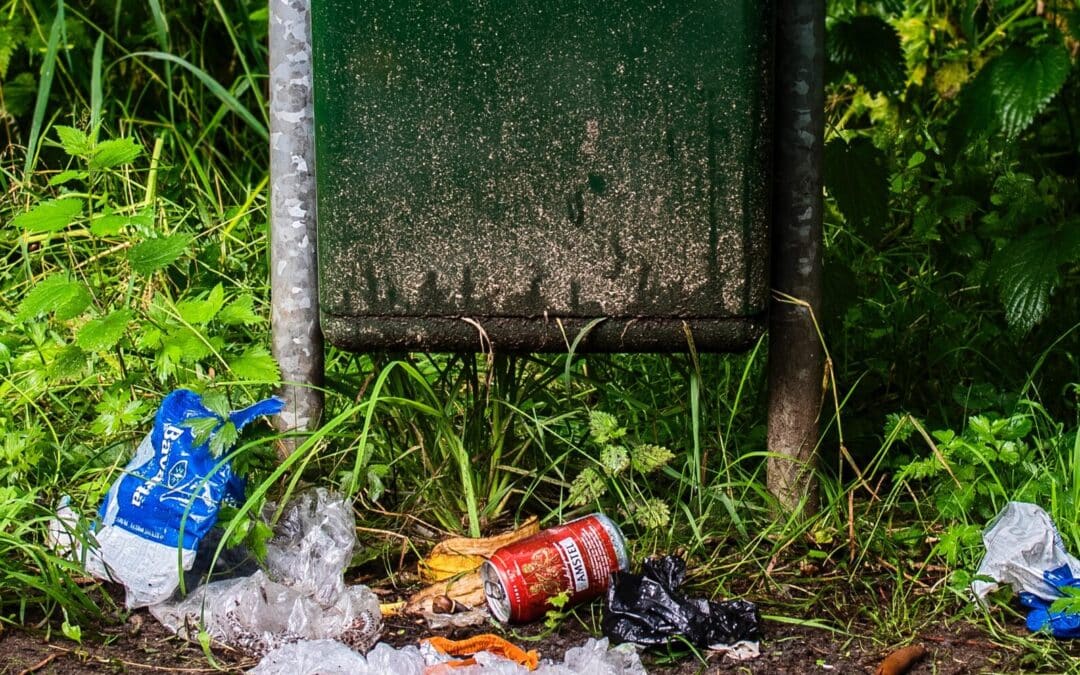
Study: tackling litter mainly helps producers of single-use products
Each region of Belgium has a different litter policy. Flanders has a -20% target for 2022 compared to 2015, which has not been achieved. In Wallonia and Brussels, agreements on litter are less clearly formulated and there is a lack of proper monitoring. In no region is litter tackled at the source.

